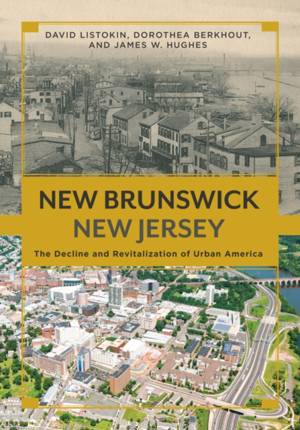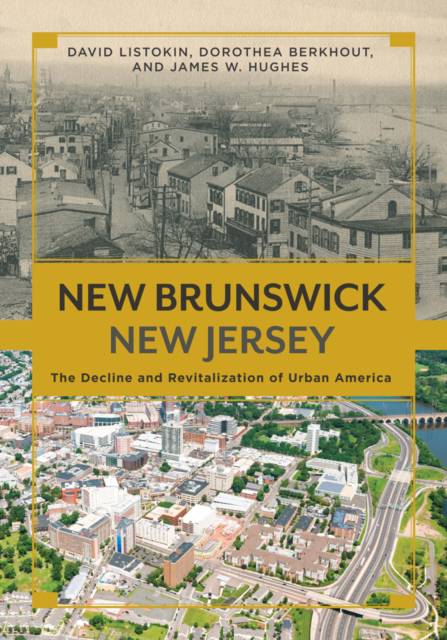
Nos liseuses Vivlio rencontrent actuellement des problèmes de synchronisation. Nous faisons tout notre possible pour résoudre ce problème le plus rapidement possible. Toutes nos excuses pour la gêne occasionnée !
- Retrait gratuit dans votre magasin Club
- 7.000.000 titres dans notre catalogue
- Payer en toute sécurité
- Toujours un magasin près de chez vous
Nos liseuses Vivlio rencontrent actuellement des problèmes de synchronisation. Nous faisons tout notre possible pour résoudre ce problème le plus rapidement possible. Toutes nos excuses pour la gêne occasionnée !
- Retrait gratuit dans votre magasin Club
- 7.000.0000 titres dans notre catalogue
- Payer en toute sécurité
- Toujours un magasin près de chez vous
New Brunswick, New Jersey
The Decline and Revitalization of Urban America
David Listokin, Dorothea Berkhout, James W Hughes
51,95 €
+ 103 points
Description
While many older American cities struggle to remain vibrant, New Brunswick has transformed itself, adapting to new forms of commerce and a changing population, and enjoying a renaissance that has led many experts to cite this New Jersey city as a model for urban redevelopment. Featuring more than 100 remarkable photographs and many maps, New Brunswick, New Jersey explores the history of the city since the seventeenth century, with an emphasis on the dramatic changes of the past few decades. Using oral histories, archival materials, census data, and surveys, authors David Listokin, Dorothea Berkhout, and James W. Hughes illuminate the decision-making and planning process that led to New Brunswick's dramatic revitalization, describing the major redevelopment projects that demonstrate the city's success in capitalizing on funding opportunities. These projects include the momentous decision of Johnson & Johnson to build its world headquarters in the city, the growth of a theater district, the expansion of Rutgers University into the downtown area, and the destruction and rebuilding of public housing. But while the authors highlight the positive effects of the transformation, they also explore the often heated controversies about demolishing older neighborhoods and ask whether new building benefits residents. Shining a light on both the successes and failures in downtown revitalization, they underscore the lessons to be learned for national urban policy, highlighting the value of partnerships, unwavering commitment, and local leadership. Today, New Brunswick's skyline has been dramatically altered by new office buildings, residential towers, medical complexes, and popular cultural centers. This engaging volume explores the challenges facing urban America, while also providing a specific case study of a city's quest to raise its economic fortunes and retool its economy to changing needs.
Spécifications
Parties prenantes
- Auteur(s) :
- Editeur:
Contenu
- Nombre de pages :
- 296
- Langue:
- Anglais
- Collection :
Caractéristiques
- EAN:
- 9780813575148
- Date de parution :
- 14-06-16
- Format:
- Livre relié
- Format numérique:
- Genaaid
- Dimensions :
- 179 mm x 262 mm
- Poids :
- 948 g







